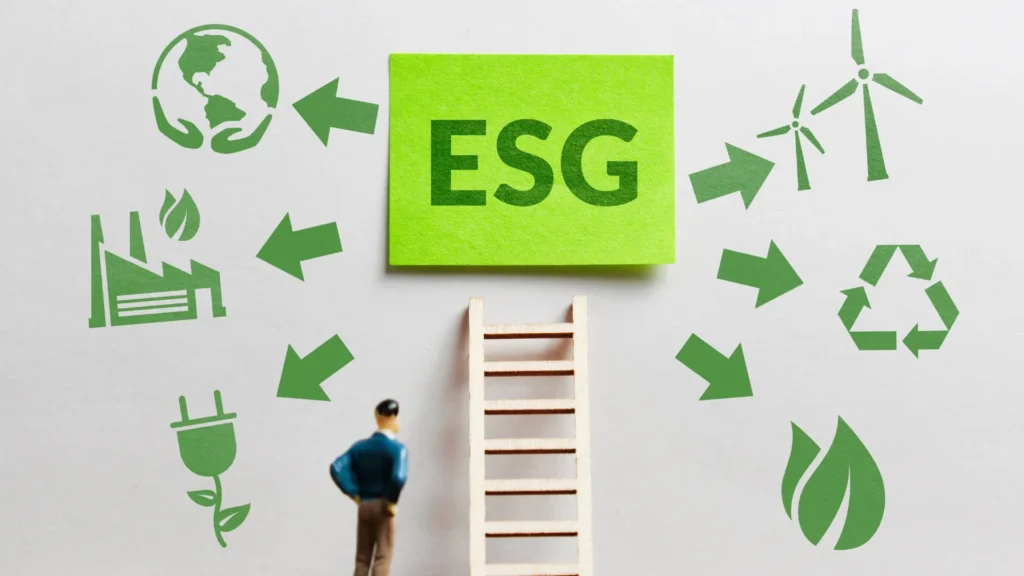
How ESG Compliance is Reshaping Real Estate
Investing in real estate used to be primarily about location and the numbers – purchase price, rental yield, and potential for appreciation. While those factors are still super important, there’s a powerful new force that’s rapidly changing the game: ESG compliance.
You might have heard the term ESG floating around in the world of business and investment. It stands for Environmental, Social, and Governance. But what does it mean for something as tangible as buildings and land? And how is it reshaping how real estate investors think and act? Let’s break it down in a simple, human way.
What is ESG in Real Estate?
Think of ESG as a way of looking at how a property or a real estate investment operates, not just for profit, but also for the well-being of the planet and people, and with strong, ethical leadership.
E is for Environmental
This is about the impact on our natural world. In real estate, it includes things like:
- Energy efficiency (using less power, perhaps from renewable sources).
- Water conservation (smart fixtures, collecting rainwater).
- Waste management (recycling programs, reducing construction waste).
- Using sustainable building materials.
- Designing buildings that are resilient to climate risks (like floods or extreme heat).
- Reducing carbon emissions during construction and operation.
S is for Social
This focuses on the impact on people and communities. In real estate, this can mean:
- The health and well-being of building occupants (good air quality, natural light, green spaces).
- Accessibility for everyone.
- Community engagement and positive local impact (creating jobs, supporting local businesses).
- Providing affordable housing options.
- Ensuring fair labour practices in construction and property management.
- Promoting diversity and inclusion within the company or projects.
G is for Governance
This is about how a real estate investment company or project is led and managed. It involves:
- Transparency and ethical decision-making.
- Accountability to investors and the public.
- Having a diverse and independent board of directors.
- Fair business practices and anti-corruption policies.
- Responsible management of risks, including environmental and social ones.
So, when we talk about ESG in real estate, we’re talking about properties and investments that are mindful of their footprint on the Earth, contribute positively to the people around them, and are run in an open and ethical way.

Why ESG is Becoming So Important for Real Estate Investors
ESG is no longer just a nice-to-have; it’s quickly becoming a fundamental part of real estate investment decisions. Why the shift? Several factors are driving this change:
Growing Investor Demand: More and more investors, from large institutions to individual investors, want their money to do good and be invested responsibly. They are actively seeking out ESG-compliant real estate assets and funds. This increased demand means properties with strong ESG performance are more attractive and can command higher values.
Risk Management: Climate change, social inequality, and governance failures pose real financial risks to real estate investments. Properties vulnerable to extreme weather events, those with poor labour practices, or companies with unethical leadership can face significant costs, legal issues, and damage to their reputation. Focusing on ESG helps investors identify and reduce these risks, protecting their investment.
Regulatory Requirements: Governments and regulatory bodies around the world are introducing stricter rules related to environmental performance, social impact, and corporate governance in the built environment. Properties that don’t meet these evolving standards may face penalties, limitations on renovations or sales, or decreased value in the future. ESG compliance helps future-proof assets against these regulatory changes.
Potential for Higher Value and Returns: Surprisingly (or maybe not!), properties with strong ESG credentials often perform better financially in the long run. They can benefit from lower operating costs (due to energy and water efficiency), higher occupancy rates (as tenants increasingly prefer sustainable and healthy buildings), potentially higher rental premiums, and easier access to “green” financing options with more favourable terms. This can lead to improved return on investment (ROI) and higher property values.
Attracting and Retaining Tenants: Just like investors, tenants (whether residential or commercial) are increasingly prioritizing sustainability, health, and well-being. They are more likely to choose and stay in buildings that offer energy efficiency, better air quality, and a positive social environment. This high demand from tenants translates into more stable income and lower vacancy rates for property owners.
Reputation and Brand Image: In today’s connected world, a company’s or a property’s reputation matters. Being known as a responsible and sustainable investor or developer can enhance your brand image, attract more business, and build trust with the community and stakeholders.
How ESG is Reshaping Real Estate Investment Strategies
The rise of ESG isn’t just influencing which properties are popular; it’s fundamentally changing how real estate investors approach their strategies:
Due Diligence is Changing: Investors are now looking beyond traditional financial and physical inspections to include ESG assessments. They are evaluating a property’s energy consumption, water usage, waste management practices, potential climate risks, and social impact on the community before investing.
Focus on Green and Sustainable Buildings: There’s a growing trend towards investing in certified green buildings (like LEED or BREEAM) or retrofitting older buildings to improve their environmental performance. This requires upfront investment, but the long-term benefits in terms of costs, value, and tenant appeal are significant.
Considering Social Impact: Investors are paying more attention to the social aspects of their projects. This might involve investing in affordable housing, developing properties that enhance community well-being, or ensuring their projects benefit residents.
Emphasis on Ethical Governance: Investors are scrutinising the governance structures of the real estate companies they invest in, looking for transparency, accountability, and ethical leadership.
Integration into Portfolio Management: ESG factors are being integrated into how real estate portfolios are managed, including tracking and reporting on ESG performance across all assets.
Development of New Investment Products: The market is seeing the rise of new investment funds and products specifically focused on sustainable and socially responsible real estate.
While integrating ESG into real estate investment comes with challenges, such as collecting comprehensive data, standardizing reporting, and the initial costs of green improvements, the long-term trajectory is clear.
Conclusion
ESG compliance is no longer a niche consideration in real estate investment; it’s becoming a core driver of value, a critical tool for risk management, and a key factor in attracting capital and tenants. Understanding what ESG is – focusing on Environmental, Social, and Governance factors – is essential for any modern real estate investor.
By embracing ESG principles, investors can not only contribute to a more sustainable and equitable future but also build more resilient, valuable, and profitable real estate investment portfolios. It’s about investing with purpose, foresight, and a clear understanding of the broader impact of your decisions in the ever-evolving real estate market.






